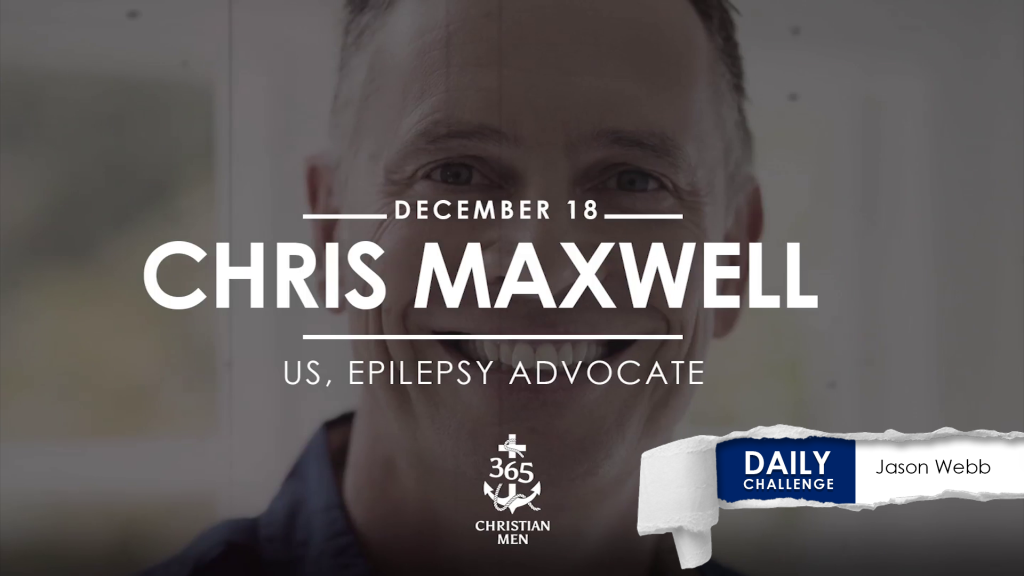December 18. Chris Maxwell. Chris is a long-time pastor—five years with youth and nineteen as lead pastor. For the last fourteen years, he has been Campus Pastor and Director of Spiritual Life at Emmanuel College. He speaks in churches, conventions, and schools, and has written nine books.
On this date in 2014, Chris appeared on “Faith Talk Atlanta” and told his story. It’s a story that reveals why his accomplishment is so amazing. Listen to this.
The limp you have, may be the message you live; be bold.
Twenty years ago, Chris was at the top of his game. Happy and healthy—physically and mentally—he enjoyed coaching youth-league basketball and pastoring in sunny Orlando, Florida. A scholar, Chris had complete books of the Bible memorized, and he remembered the name of every person he met.
But in March 1996, Chris got sick. He had high temperatures and headaches and stomach pain so bad he passed out. When his speech stopped making sense, his family rushed him to the hospital.
“The doctors didn’t think I would live,” Chris said. The diagnosis was shocking: herpes simplex encephalitis. The neurologist said an MRI of Chris’ brain looked like Swiss cheese. It was severely scarred, and his left temporal lobe was permanently damaged.
Epileptic seizures followed, and though they were eventually controlled with medication, Chris suffered a lot. After his discharge, he had to have extensive rehabilitation, including three daily visits from a nurse and speech therapy that made him feel like a child.
For six months, he wasn’t allowed to drive.
The most difficult things to cope with, however, were the invisible effects of Chris’ illness: his personality, knowledge, memory, and emotions had all changed. His wife Debbie said it was like getting to know a second husband.
But Chris refused to give up. He survived and has become an advocate for people who deal with epilepsy and encephalitis. He has also published several books—only now he’s more of a poet than a scholar.
He recognizes that his difficulties, his slowness, and his struggle allow him to teach and write in a way he never could have before. He relates well to the Old Testament story of Jacob.
“So Jacob was left alone, and a man wrestled with him till daybreak. When the man saw that he could not overpower him, he touched the socket of Jacob’s hip so that his hip was wrenched as he wrestled with the man. Then the man said, ‘Let me go, for it is daybreak.’ But Jacob replied, ‘I will not go unless you bless me’” (Genesis 32:24–26 NIV).
Chris is determined to grab hold of the blessings that come with his “mental limp.”
The man who used to write curriculum on the Psalms is now living them. Today, Chris sees value in each moment. In each person. In each conversation. In each breath. In his advocacy work, he explains that the Greek root of the word epilepsy is seized but adds: “Instead of being the object of seizure and being held back, I choose to be the subject: to seize the day, to seize the moment. Seize this moment.”
Chris has learned to slow down, to pause—a theme he often writes about. “Instead of doing more to impress God, how can we find Him in the now? Driving down the road. Eating in a restaurant. Having a conversation with you? Where is God in the picture? He is here.”
Is there something you deal with, something causing you to limp? The limp you have, may be the message you live; be bold.
Based on an interview with Chris Maxwell, 2019.
Crossroads Christian Communications Inc. “Pause with Jesus.” 100 Huntley Street. May 30, 2016. http://www.100huntley.com/watch?%20id=223470.
Story read by: Joel Carpenter





